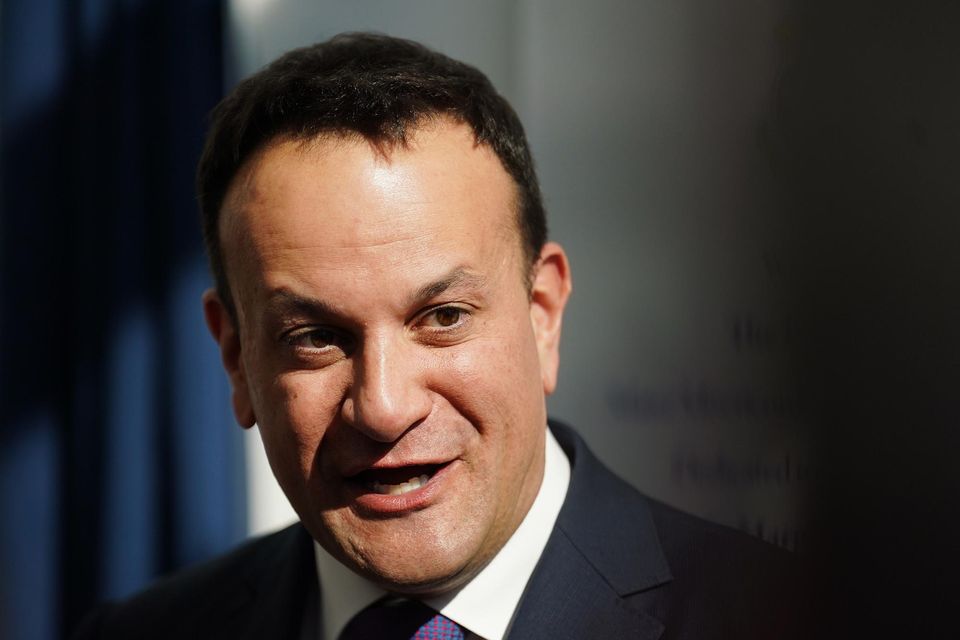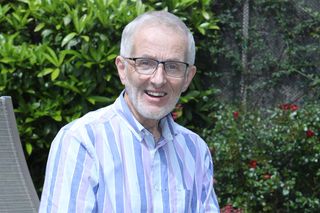Taoiseach warns energy costs to remain ‘very high’ this winter
Varadkar says need for more housing is growing as population increases
Leo Varadkar. Photo: Brian Lawless/PA
The Taoiseach has warned that energy costs are set to remain “very high” throughout the winter.
Speaking at the National Economic Dialogue, a forum for public consultation on the Budget, at Dublin Castle, Leo Varadkar said that inflation is now moderating.
The rate of inflation here stood at 5.4pc in May, down from an annualised rise of 6.3pc in April, according to the Central Statistics Office.
“Some prices will fall but prices are unlikely to return to what they were,” Mr Varadkar said. “Energy costs in particular will remain very high through the winter and energy poverty is very real.”
He added that he is “conscious” of calls from organisations in the last few days to help those who are likely to struggle with energy bills over the winter months.
“We’ll need actions that are short term that help people pay those bills but also medium and long-term [actions] because we know that energy saving, energy efficiency, insulation and a move to renewables will give us price stability in the medium to long term.”
The Government introduced €600 credit for domestic customers in Budget 2023. This credit was paid in three separate instalments, with consumers receiving the final payment in March 2023.
Earlier this year, Mr Varadkar said that a fourth energy credit is “a possibility” towards the end of 2023.
“One-offs have their place but are not a long term solution,” he said today.
In March, the EU advised governments to end household energy supports by the end of 2024 and instead to focus on investment in green infrastructure.
Mr Varadkar also told the National Economic Dialogue that targets for housing in Ireland also need to be updated.
There are currently 30,000 new homes a year now, he said.
“The country is in the middle of a very deep housing crisis,” he said, adding that falling homeownership is an “economic concern.”
“Because of a very tight labour market, we need to expand our housing stock to facilitate an expanding economy. Our task has been made all the more challenging by high levels of inward migration from Ukraine and a rapidly expanding population due to natural increase,” he said.
“Much more is achievable, I believe,” he said.
He also highlighted a need for a decrease in tax for middle income earners.
“I believe that middle income earners pay too much tax between income tax and USC,” he said.
“It’s not fair that the tax system erodes any pay increases that they do get. This isn’t the norm in countries that we compete with, like the UK, Canada, Australia…the countries that we compete with for talented labour the most.”
He also called for employers to increase pay for younger workers and new entrants, who “bear the highest living costs, like rent and the cost of raising a child.”
A rise in spending and readiness to commence planned investment in roads, schools, health facilities and other infrastructure is also needed, the Taoiseach said today.
Mr Varadkar said that the capital spending ceilings for the national development plan must also be revised for the remainder of the decade to achieve this as population growth continues.
However, Finance Minister Michael McGrath highlighted an “increasing reliance on volatile corporation taxes.”
He pointed to recent Irish Fiscal Advisory Council research which revealed that three firms are paying 30pc of corporate tax receipts.
“Last year, just 10 firms contributed almost 60pc of all corporate tax receipts,” he added.
Mr McGrath said such funds will not be used on necessary infrastructure projects.
“The Government will not make permanent expenditure commitments on potentially transient revenues,” he said.
“In the last year, €6bn in windfall tax receipts have been transferred to the National Reserve Fund to build up our fiscal buffers while ensuring that these revenues do not become part of our expenditure base into the future.”














